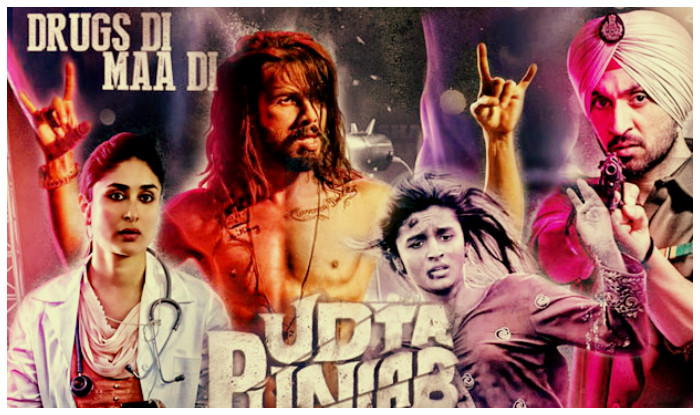Censor The Censor Board!
By Suraj Kumar Thube
09 June, 2016
Countercurrents.org

With the filmmakers of "Udta Punjab" now told to make 89 cuts, the levels of imbecility have reached unfathomable proportions. The Central Board for Film Certification has one again meddled with the creativity of a filmmaker by asking them to pull down all scenes that use the word "Punjab" as it denigrates the image of the state in general! Having being told to see it as a movie based in some fictionalised space makes a mockery of both the characters of the film and also of the state which has been facing a serious drug problem for long. The man at the helm of affairs, Pahlaj Nihalani, has to be blamed singularly for turning this industry into a lifeless lot of sycophants who are expected to stay away from all that sounds contentious and debatable. His own personal record off late speaks volumes of his own sense of film making in India.
Pahlaj Nihalani shot to fame with an almost devotional sounding track titled Har Har Modi followed up by a grand jamboree of patriotism in his second video called Mera Bharat Mahan, Mera Bharat Jawaan. Now if anyone has such unflinching admiration for their motherland, a reality check is always going to be hard to digest. That the state of Punjab is facing a severe drug addiction problem among its youth is an age old story. What Mr Nihalani is doing here is trying to iron out the gravity of the issue by simply neglecting the reality and expecting the prospective audience to buy this inane proposition of the film maligning the image of the state. This has not been the first case where the board has sought to intrude in the world of a filmmaker. Mastizaade, a recent rom-com featuring Sunny Leone was subjected to deleting scenes which were thought to be too adult, crossing the line of decency. ( whatever one means by these words). We even saw a similar puerile reaction when the latest instalment in the James Bond series was seen with drastically reduced kissing scenes. One can think of many such films in the recent past where they censured contents highlighting the dark underbelly of the Indian society.
With the trailer , music launch and all the other promotional events out in the public domain, it seems hard for the viewers to see it as a story depicting grave situations of a fictionalised place. One cannot help but feel that the 2017 assembly elections has a lot to do with this decision. Given the fact that the BJP and the Akalis are a coalition, often a tenuous one at best, this sort of a knee jerk reaction was all that one could have been expected. If the Censor board indeed had a problem with the word "Punjab", why wasn't it pointed out at the time of the release of its trailer? Of course, the larger issue seems its recalcitrance to come to terms with the acknowledging of what the reality is. If Mr Nihalani feels that having sex, or a lip lock or talking about something that is a pressing issue of the day as "immoral", "wrong" or "bad", he should say it in so many words. People will at least get to know what ideas or belief the Censor board stands for. Keeping the rationale hanging in the air and leaving a large chunk of it for the viewers to decipher is doing nothing else but to stay put with one's calculated ambiguity. What for example does the Censor board itself mean by a word like "censorship" is something that needs to be asked by all film lovers alike. This for a board which should ideally be referred to as the CBFC and not the "Censor board" which has become popular in common parlance. There should be a serious deliberation on the Mukul Mudgal report and more recently of the committee headed by Shyam Benegal regarding the removing of the censorship powers of the CBFC and only assigning it a role of film certification.
This entire insistence on how there can be no blot on the glorious image of our Indian society should be done away with at the earliest. The best response perhaps came from Shahid Kapoor himself when he urged everyone to look at it as an "Indian" problem and not simply as a provincial one. Perhaps the obsequious chairman of the CBFC should learn a lesson or two by respecting the nation in the right way. An engagement with criticality and not prostrating in front of a phoney ideology respecting antiquated morals is what needs to be realised at the earliest.
Suraj Kumar Thube is currently pursuing his MA in Political Science from Jamia Millia Islamia, New Delhi. He is interested in Indian politics and Indian political thought. He spends most of his time reading books, playing football and listening to Hindustani classical music.

